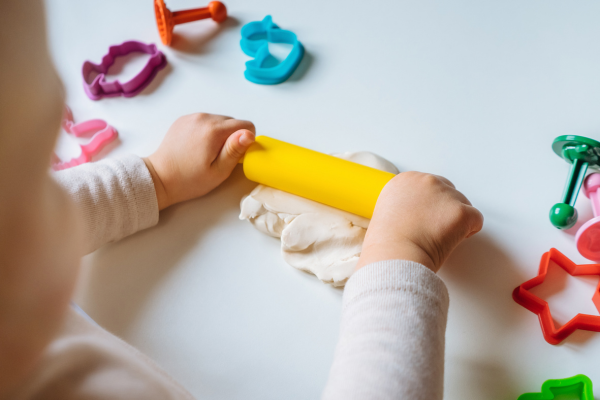 This article was written by Dr Edith Agius, General Adult and Perinatal Psychiatrist.
This article was written by Dr Edith Agius, General Adult and Perinatal Psychiatrist.
One in five pregnancies end in miscarriage.
A miscarriage is defined as a pregnancy loss that occurs before week 20 of a pregnancy. Many women and their partners are affected, with one in ten women experiencing a miscarriage in their lifetime. Although common, this does not take away from the often devastating impact that this can have on your emotional health.
Pregnancy loss can lead you to grieve for more than just the pregnancy. You can also grieve your sense of self and your hopes for the future as a mother or father of that child.
Although the baby may no longer be physically present, you may still feel a continued bond and attachment. Even if the pregnancy ended very early, the sense of bonding can still be strong.
 What is grief?
What is grief?
Put simply, grief is the price we pay for love. Normal grief, also referred to as uncomplicated grief, encompasses a broad range of feelings and behaviours that are common after a loss.
Traditional models of grief assume that a bereaved person, after a period of time, is able to ‘let go’ of their emotional relationship with the deceased. However, many bereaved parents continue to feel a bond with the baby they lost, and find solace in this.
Grief has been viewed as a passive process, yet researchers suggest that grief is a necessary painful process in order to foster human growth and maturity.
Worden (1991) describes mourning as necessary and identifies 4 tasks of grief:

1. To accept the reality of the loss.
There is always a sense that it hasn’t happened when someone dies, even if the death is expected. Facing with the reality that the person is gone and will not return is the first task of grief.
2. To feel the pain of the grief.
Pain is usually associated with sadness and dysphoria. However, anxiety, guilt, depression and loneliness are other common feelings of grieving. To get the grief work done, it is necessary for the bereaved to go through the pain of grief. Anything that continually allows the person to avoid or suppress this pain can otherwise be expected to prolong the course of mourning
3. To adjust to a world without the deceased.
There are three areas of adjustment that need to be addressed after the loss of a loved one:
- There are the external adjustments, or how the death affects one’s everyday functioning in the world;
- internal adjustments, or how the death affects one’s sense of self; and
- spiritual adjustments, or how the death affects one’s beliefs, values, and assumptions about the world.
 4. Finding an enduring connection with the deceased in the midst of embarking a new life.
4. Finding an enduring connection with the deceased in the midst of embarking a new life.
It is crucial to find ways to remember our dead loved ones and keep them with us, while still moving on with life.
According to Wallerstedt et al (2003), the duration and intensity of grief following perinatal loss are often far longer and greater than most people expect. It is normal for many parents to grieve their baby for months or years. It’s also normal to experience resurgences of intense grief on certain anniversaries and other important occasions for up to ten years or more.
Losses are often found to be the root of later mental health problems if they are ignored, not validated or left unresolved.
Coping with miscarriage
The time taken to come to terms with a miscarriage can vary greatly from one individual to another. It is important to acknowledge how you are feeling and when you and your partner may be ready to try to have another baby.
For some, there may be a sense of urgency to have another baby. If this is driven by your need to recover from feelings of grief or sadness, however, you may need to consider giving yourself some time to process your loss.
Having a baby to fill a void rarely takes away the pain. Rather, these feelings of loss may resurface at a later time and make it difficult to cope. This is because your need to grieve has simply been put ‘on hold’.
 Memorialise your loss.
Memorialise your loss.
Some people find comfort in memorialising their loss. Depending on how far along you were in your pregnancy, a burial may be possible. Lighting a candle, creating a scrapbook, planting a tree or hosting a small gathering with loved ones are all ways to memorialise your loss.
Share your experience.
Simply talking about your experience with a supportive person can significantly help relieve some of the emotional pain. If you are in a relationship, find ways of coping together.
Break the silence.
Share your feelings and verbally express how your partner can support you during this difficult time. In return, ask your partner how you can support them.
When to Seek Help While Coping With Miscarriage
 If your miscarriage grief has made it difficult for you to function, a therapist can help guide and support you through this traumatic experience.
If your miscarriage grief has made it difficult for you to function, a therapist can help guide and support you through this traumatic experience.
No matter what, it’s important to know you do not have to go through this experience alone. There is no shame in reaching out for help.
Pregnancy after loss
It’s common to feel a range of mixed emotions during a subsequent pregnancy. While you may feel excited about the thought of becoming pregnant again, you may also feel some anxiety, which is completely normal. Balancing feelings of joy for a new baby with apprehension will gradually come with time. Talking with people you can trust about how you are feeling can provide you with support and reassurance.
If, however, you find that you are feeling constantly on edge or worried that something is wrong or will go wrong, talk to your Obstetrician about how the pregnancy is progressing. If these thoughts and feelings continue, and begin to feel like they are taking over, your Obstetrician can refer you to a more specialised service: the Perinatal Mental Health Clinic at Mater Dei Hospital.
Dr Edith Agius is a General Adult and Perinatal Psychiatrist. She completed a Masters degree with Sheffield Hallam University in Perinatal Mental Health. She is a committee member and serves the PRO role in the Parent-Infant Mental Health Alliance (NGO) and founder of the Instagram page Reproductive Psychiatry. Dr Edith is trained in VIG with the Association of Video Interactive Guidance UK and is now a VIG Accredited Practitioner.



